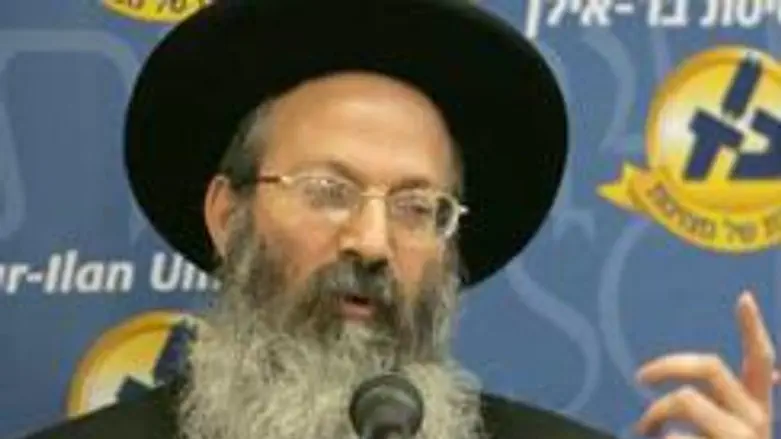
The Head of Har Bracha Yeshiva, Rabbi Eliezer Melamed, met Deputy Defense Minister Matan Vilnai Thursday evening at the 'Beit HaChayal' soldiers' hostel in Jerusalem.
The rabbi's confidantes explained that the meeting was held after clarifications that it was not a 'hearing' and after a neutral venue was chosen. “The meeting was held in a good atmosphere and in mutual respect,” they said. “The positions were clarified in a practical manner and there are still several subjects requiring clarification that may be discussed in the near future and perhaps in a second meeting.”
The rabbi's confidantes told Arutz Sheva that the rabbi quoted from his own column in Besheva magazine, which appears Thursday. In the column, 'Revivim,' he cited the words of the late Rabbi Shlomo Goren, former Chief Rabbi Shlomo Goren, who gave a Torah ruling in favor of refusing an order to expel Jews from their communities and compared it to an order to desecrate the Sabbath.
Rabbi Melamed noted that when Rabbi Goren was asked if he is not afraid that he would be tried for sedition, he declared that he is willing to be shot dead there and then, but he will not change his mind. He shared his feelings and views with his students and told them that he is truly willing to die for this matter.
Rabbi Melamed also told the Deputy Defense Minister – and wrote in his column – that following the Oslo accords Rabbi Goren gave a Torah ruling that an IDF soldier may not participate in the tearing down of a community or camp in the Land of Israel, and if he does receive such an order he must refuse it. “His sorrow over the Oslo accords affected his health,” Rabbi Melamed added. “He saw these accords as causing profound damage to the purpose of the State of Israel and was certain that they would weaken the state and expose its citizens to terrible terror attacks. When the initiative to evacuate Hevron was raised, he announced that this must be fought with body and soul, and said that he, personally, was willing to be killed in order to prevent the abandonment of Hevron.”
“His opinion was published and made waves,” Rabbi Melamed recounted. “For a whole day he gave interviews to radio and television networks from Israel and the world. At the end of that day he told me on the telephone that it had been an important day, and that with the help of G-d he succeeded in making his opinion widely heard, and he hopes that it had the desired effect."